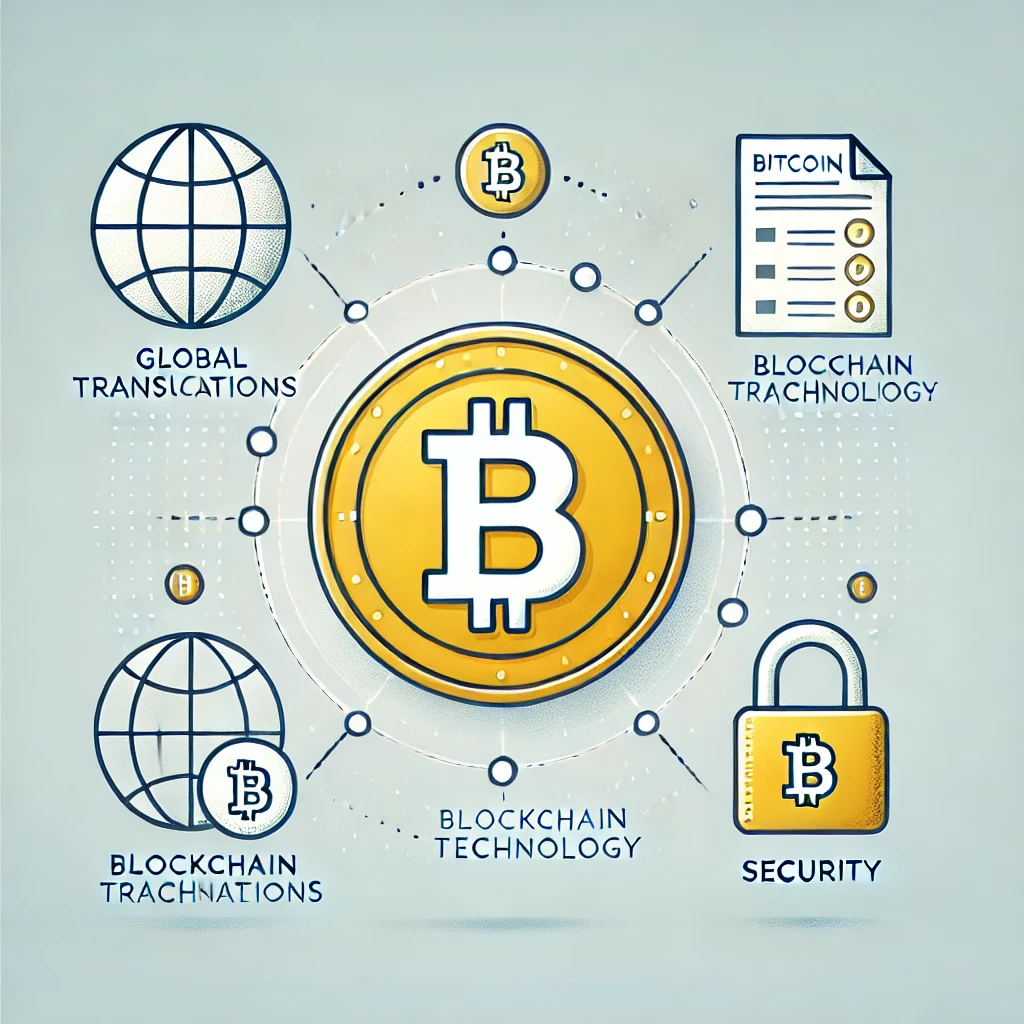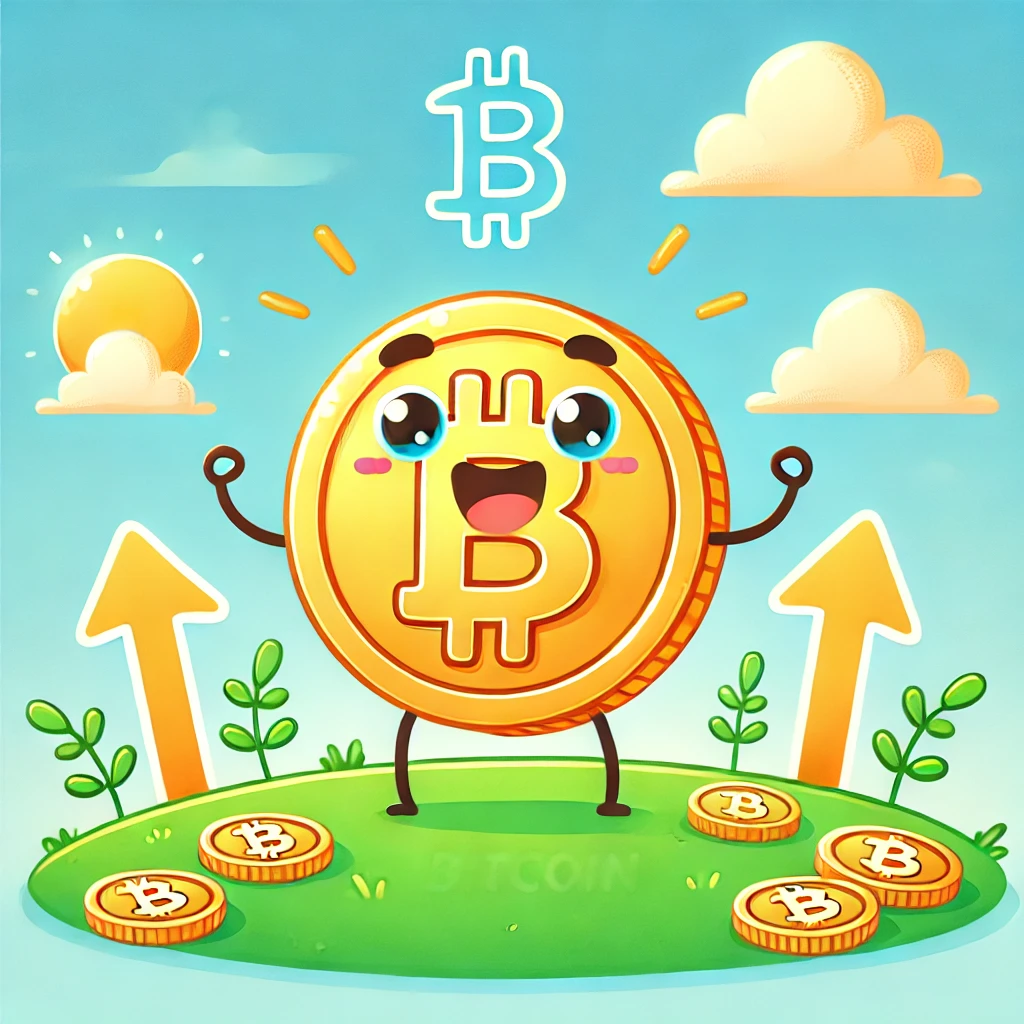Understanding Bitcoin: A Beginner’s Guide
Bitcoin is often called “digital gold,” but what does that mean, and why is it important? If you’re curious about Bitcoin but don’t know where to start, this guide will walk you through the basics, explaining everything in simple terms.
What is Bitcoin?
Bitcoin is a type of digital money that exists only online. Unlike traditional money (like dollars or pounds), Bitcoin is not controlled by any government or bank. It was created in 2009 by someone (or a group) using the pseudonym Satoshi Nakamoto.
How Does Bitcoin Work?
Bitcoin operates on a system called blockchain. Here’s an analogy to help:
- The Blockchain: Imagine a digital notebook shared across thousands of computers worldwide. Every time someone uses Bitcoin, a new note (or transaction) is written in this notebook.
- Decentralization: No single person or entity owns this notebook, which makes Bitcoin transparent and secure.
Why is Bitcoin Valuable?
Bitcoin’s value comes from a few key factors:
- Limited Supply: Only 21 million Bitcoins will ever exist, making them scarce (like gold).
- Decentralization: No central authority can inflate or manipulate Bitcoin.
- Global Accessibility: Anyone with an internet connection can use Bitcoin to send or receive money anywhere in the world.
How Do You Use Bitcoin?
- Buying Bitcoin: You can buy Bitcoin using apps like Coinbase, Binance, or Kraken.
- Storing Bitcoin: After buying, store your Bitcoin in a wallet. Think of it as a digital purse where you keep your coins safe.
- Hot Wallets: Apps connected to the internet (e.g., mobile wallets).
- Cold Wallets: Offline storage (e.g., USB-like devices).
- Spending Bitcoin: Some businesses accept Bitcoin for payments.
What Are the Risks?
While Bitcoin has benefits, it’s important to be aware of the risks:
- Price Volatility: Bitcoin’s value can rise or fall dramatically.
- Scams: Be cautious of fake websites and investment schemes.
- Loss of Keys: If you lose access to your wallet, your Bitcoin is gone forever.
Bitcoin vs. Traditional Money
Bitcoin and traditional currencies differ in several fundamental ways:
Control:
- Bitcoin is decentralized, meaning no single entity, government, or bank controls it.
- Traditional money, like dollars or pounds, is controlled by central banks and governments.
Transactions:
- Bitcoin enables peer-to-peer transactions directly between users without intermediaries.
- Traditional money transactions often involve a third party, like a bank or payment processor.
Inflation Risk:
- Bitcoin has a fixed supply of 21 million coins, making it immune to inflation caused by overproduction.
- Traditional currencies can be printed unlimitedly, possibly leading to inflation if not managed carefully.
Why Should You Care About Bitcoin?
Bitcoin represents a shift in how we think about money. It gives people financial independence and the ability to transact freely across borders.
Final Thoughts
Bitcoin can seem complex, but breaking it into simple concepts makes it easier to understand. Start by learning, experimenting with small amounts, and always stay cautious of potential risks.
For more information, check out Bitcoin.org or Investopedia’s Bitcoin Guide.

How to Buy Bitcoin
Buying Bitcoin is easier than ever, thanks to user-friendly platforms known as cryptocurrency exchanges. Here’s a simple step-by-step guide to get started:
1. Choose a Trusted Exchange
Exchanges are online platforms where you can buy, sell, or trade Bitcoin. Here are some of the most popular and beginner-friendly exchanges:
- Coinbase: A widely used platform with an intuitive interface, great for first-time buyers.
- Binance: Offers a wide range of cryptocurrencies and advanced trading features, though it’s still accessible for beginners.
- Kraken: Known for its robust security and detailed educational resources.
- eToro: Combines cryptocurrency trading with social trading features, allowing you to follow experienced traders.
- Gemini: A regulated exchange with a focus on security and compliance.
2. Set Up an Account
After selecting an exchange:
- Sign up with your email address.
- Verify your identity (usually involves uploading a photo ID).
- Secure your account with a strong password and two-factor authentication (2FA).
3. Add Funds
Most exchanges let you deposit money using:
- Bank transfer: Low fees, but may take a few days.
- Credit/debit card: Instant purchases but higher fees.
4. Buy Bitcoin
Once your account is funded:
- Search for Bitcoin (BTC) on the exchange.
- Enter the amount you want to buy (you can purchase fractions of Bitcoin).
- Confirm the transaction.
5. Transfer to a Wallet
For added security, transfer your Bitcoin from the exchange to your personal wallet. Exchanges are convenient but can be vulnerable to hacking.
Buying Bitcoin doesn’t have to be intimidating. With these steps and the right platform, you’ll be on your way to owning your first Bitcoin in no time!

